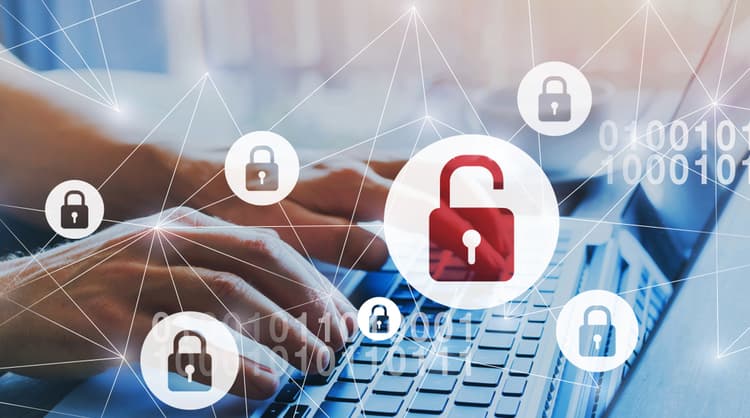Why you should study a cyber security certificate

As the country’s technology grows ever-more vulnerable to the rising rates of cybercrime, investment in the proper security tools, systems, and training is critical. With an average of 164 cybercrime reports made per day (about one report every 10 minutes), both Australian businesses and individual users alike must learn to implement and optimise the latest cyber defenses. This is especially urgent in a time of greater online activity, as the aftermath of COVID-19 pushes more Australians to the online landscape.
Undertaking a course or getting certified in cyber security is a sure-fire way to build the skills and knowledge required to stay protected.
We explore the common training areas of such courses below, as well as critical industry skills for those seeking a career in the field.
What can you learn through a cyber security course?
Cyber security courses will typically dive into essential technical areas such as penetration testing; performing risk assessments; protecting a business’ IT infrastructure; disaster recovery and incident response; and analysing threat data. Broader tech areas such as networking skills, virtualisation, and cloud computing may also be explored, depending on the course. Students will also likely learn the basics of ethics, privacy, and IP in an ICT workplace.
However, a quality program not only covers the hard skills involved in the field – but the soft skills required to build your professional network. These include the ability to manage clientele issues; promote cyber security awareness and best practices; and lead or collaborate within a team.
Upskilled currently provides such online training through their ICT50120 – Diploma of Information Technology (Cyber Security) course, a two-year program that encompasses all such skills areas; paving the way for higher-level qualifications or careers in network security. Students can equip themselves with foundational skills in cyber security – all through a flexible, online study experience.
What skills do you need to succeed in cyber security?

Studying or building experience in cyber security can help arm you with the following skillset to stand out in the industry. Sought-after abilities in the cyber security field include:
1. Strong analytical skills
Cyber security specialists are typically tasked with reviewing one’s network or computer systems, analysing any existing vulnerabilities addressing potential threats. They may then be required to develop new, creative solutions to deter or manage risks, optimising existing tools or applying new technologies where necessary.
A strong analytical skillset often goes hand-in-hand with problem solving and critical thinking skills. One must be able to examine a user’s current defences, while at the same time, pinpointing areas for improvement and determining the root cause of certain problems. An analytical mindset should also drive one to ask questions and inquire with experts when needed, as the industry often rewards those who are curious, inquisitive, and willing to keep pace with evolving industry challenges.
2. Technical computer experience
Of course, technological skills and experience are required to succeed in this field. More specifically – aspiring security specialists must have a thorough understanding of the structure, administration, and management of network systems, operating systems, and virtualisation software. This includes getting familiar with network servers, firewalls, IDS/IPS (Intrusion Detection Systems/Intrusion Prevention Systems), and SIEM (security information and event management).
Additionally, you may be required to have updated knowledge of and experience with common programming languages; including assembly, language, scripting language (i.e. Python, PHP, shell, etc.), C/C++, and Java.
Field entrants may also benefit from having a certification under their belt, as this verifies one’s skills as being up to industry standard. This is where cyber security training (such as Upskilled’s diploma course) comes in handy, as it builds one’s fundamental knowledge of the field, helping prepare them for certification.
3. Excellent communication (both written and verbal)
Strong written and verbal communication is another valuable soft skill, as cyber security specialists often need to educate other users (i.e. C-Suite executives) on best practices, security processes, or new developments and findings. The ability to communicate these in plain language – free of technical slang or jargon – is also critical.
Security specialists must also exercise active listening, particularly when managing customer inquiries or concerns.
Additionally, strong communication skills can help you identify and explain cases of social engineering – a popular cybercrime tactic in which criminals manipulate users into sharing their passwords or credentials.
4. Knowledge of security practices, procedures, and common vulnerabilities

Experience in ethical hacking, penetration testing, and vulnerability scanning is recommended – as these provide efficient methods for identifying, managing, and resisting cyber-attacks.
Due to the rapid pace of the industry, staying up to date with the latest field developments is also crucial. Professionals must stay aware of the newest security tools, practices, and cybercrime methods in order to maintain or improve their online protection as necessary.
5. Leadership and management
Finally, a successful cyber security specialist is well-skilled in leading, collaborating, and managing others within their department. Those in the field are likely to work within a team, sharing their responsibilities across other security practitioners in their organisation. The ability to instruct, guide, and motivate others when necessary is crucial to maintaining productive, cohesive cyber security operations within their business.
As a security expert; other, inexperienced users are likely to turn to you in times of technical trouble. Exerting leadership through your ethics, responsiveness, and credentials is a must, helping you gain further trust among your peers and senior management. Additionally, you may also be required to provide and lead actionable strategies in improving your company’s cyber security systems and practices.
Looking to launch a career in cyber security?
With Australia in need of approximately 17,000 additional experts by 2026 to bridge our ever-growing security skills gap; aspiring cyber security professionals are bound to find plenty of training and career opportunities in this industry.
Due to its high skills demand and limited talent pool, the field also currently offers a generous salary package, with the average worker earning $107,696 per year (according to Talent.com).
As mentioned, Upskilled currently offers a comprehensive course in cyber security through their ICT50120 – Diploma of Information Technology (Cyber Security). Individuals can build the fundamental skills and experience required to pursue higher-level certifications or launch an entry-level career in the field; all through a flexible, online program suited to your schedule.
Learn to boost your online safety, or pursue a lucrative career in one of IT’s top industries – and enquire with us on our course today.


)
)

